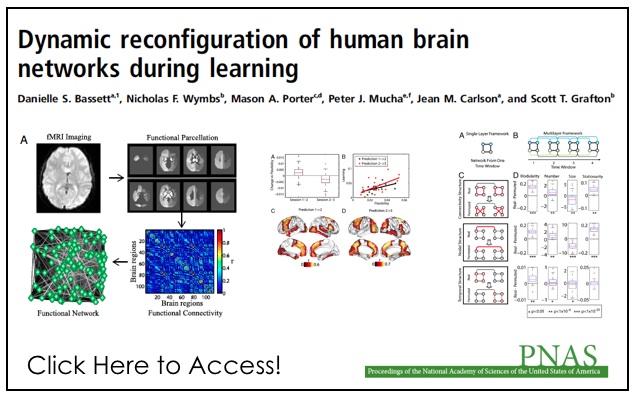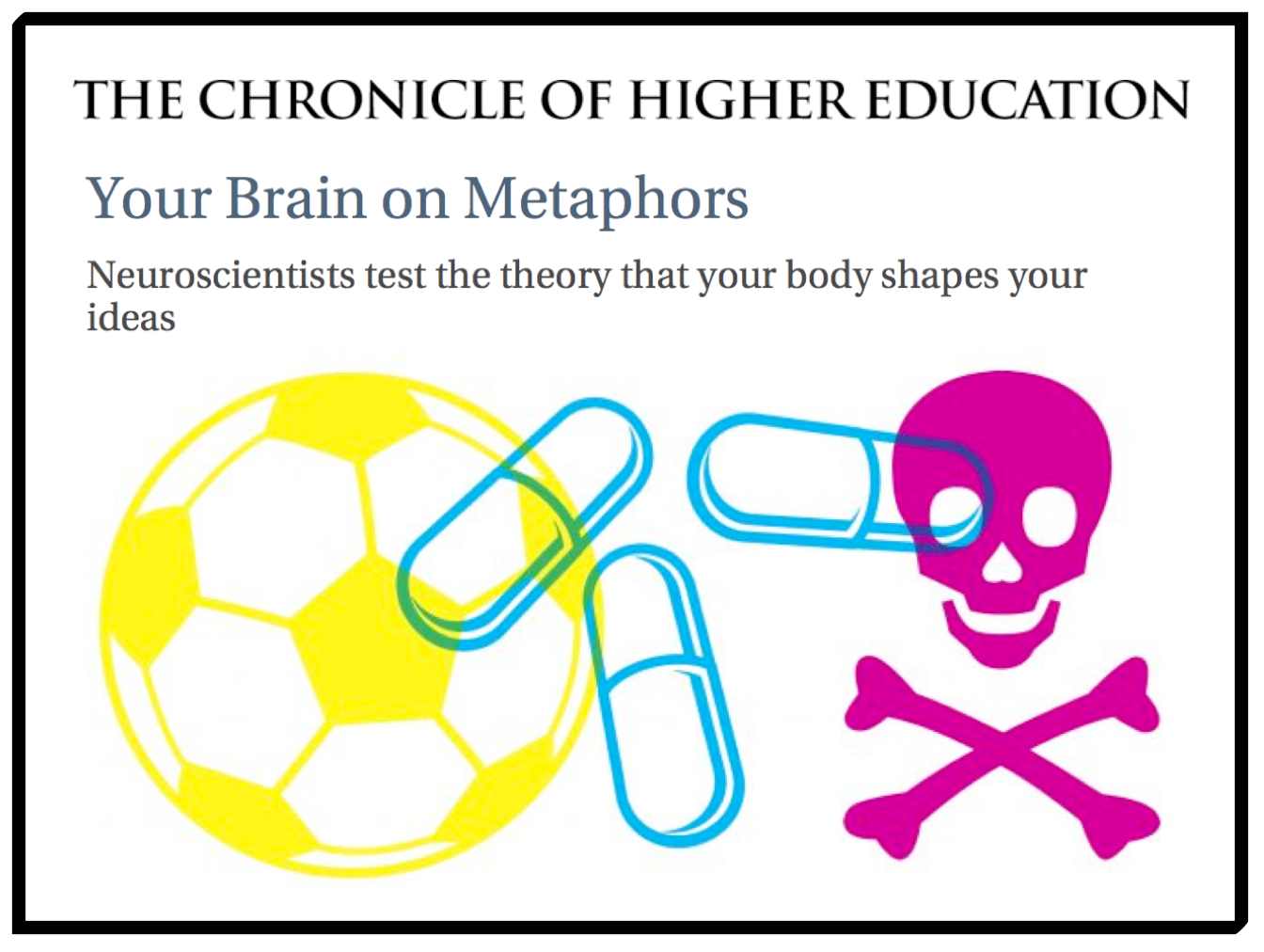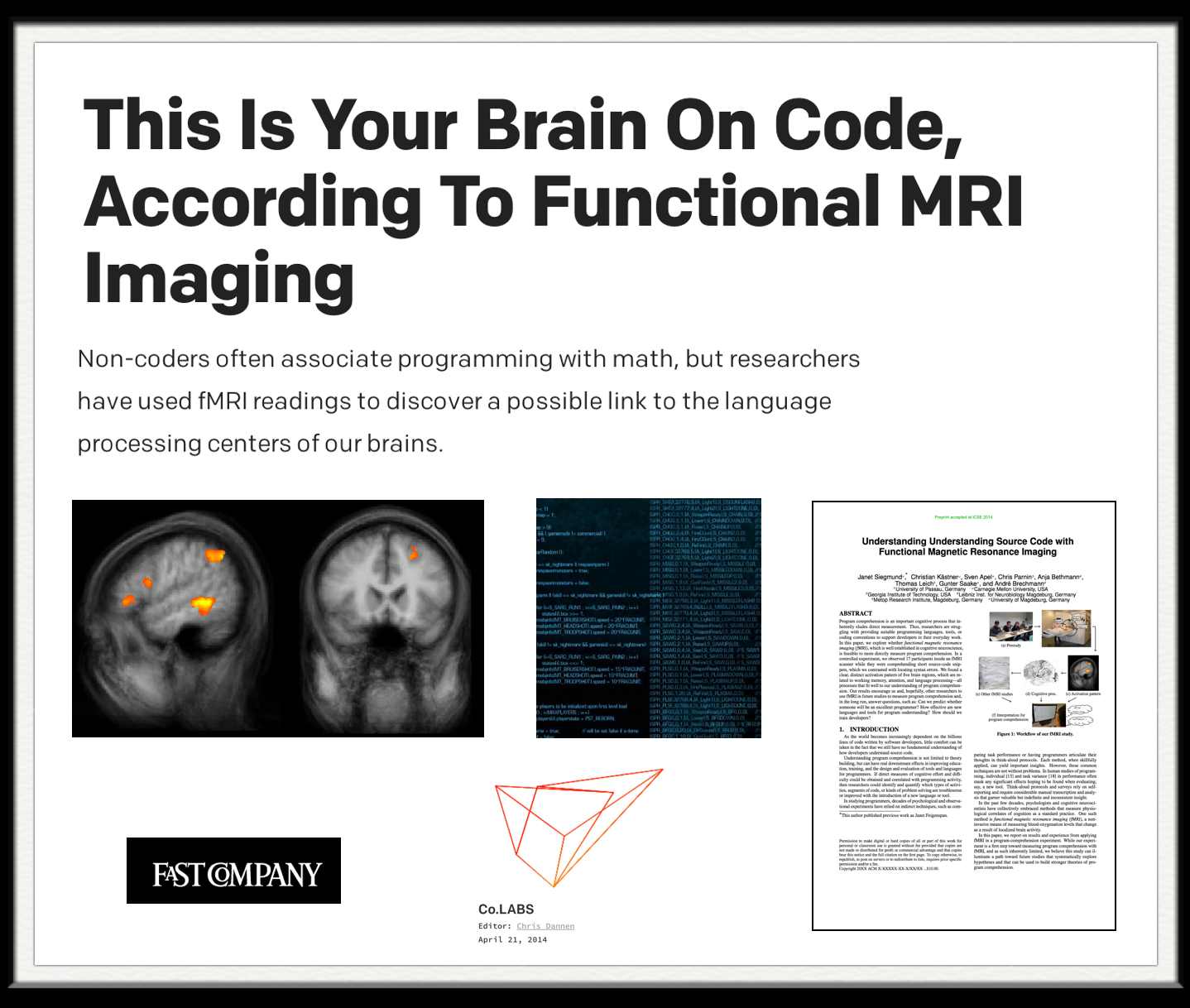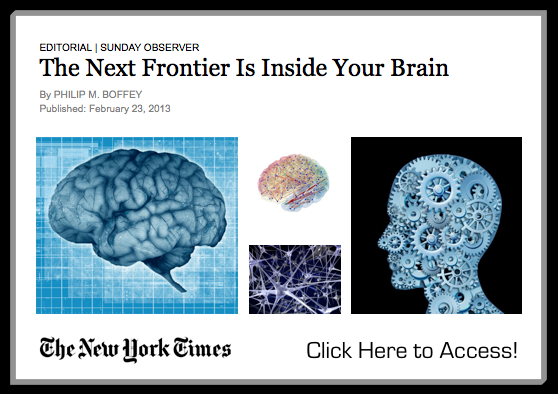Tag: neuroscience
Neil Burgess: How Your Brain Tells You Where You Are [TED Salon]
How do you remember where you parked your car? How do you know if you’re moving in the right direction? Neuroscientist Neil Burgess studies the neural mechanisms that map the space around us, and how they link to memory and imagination.
Paul Zak: Trust, Morality – and Oxytocin [ TED Global 2011]
“Where does morality come from — physically, in the brain? In this talk neuroeconomist Paul Zak shows why he believes oxytocin (he calls it “the moral molecule”) is responsible for trust, empathy, and other feelings that help build a stable society.”
Dynamic Reconfiguration of Human Brain Networks during Learning [From PNAS]

Abstract: “Human learning is a complex phenomenon requiring flexibility to adapt existing brain function and precision in selecting new neurophysiological activities to drive desired behavior. These two attributes—flexibility and selection—must operate over multiple temporal scales as performance of a skill changes from being slow and challenging to being fast and automatic. Such selective adaptability is naturally provided by modular structure, which plays a critical role in evolution, development, and optimal network function. Using functional connectivity measurements of brain activity acquired from initial training through mastery of a simple motor skill, we investigate the role of modularity in human learning by identifying dynamic changes of modular organization spanning multiple temporal scales. Our results indicate that flexibility, which we measure by the allegiance of nodes to modules, in one experimental session predicts the relative amount of learning in a future session. We also develop a general statistical framework for the identification of modular architectures in evolving systems, which is broadly applicable to disciplines where network adaptability is crucial to the understanding of system performance.”
Sebastian Seung: I Am My Connectome [ TED 2010 ]
Sebastian Seung is mapping a massively ambitious new model of the brain that focuses on the connections between each neuron. He calls it our “connectome,” and it’s as individual as our genome — and understanding it could open a new way to understand our brains and our minds.
The Architecture of the Brain — Network or Hierarchy ? [BBC News & PNAS ]
This week in the Proceedings of the National Academy of Sciences comes a very important article entitled Hypothesis-driven structural connectivity analysis supports network over hierarchical model of brain architecture by Richard H. Thompson and Larry W. Swanson of the University of Southern California. Above is the BBC coverage regarding the paper. Here is the press release from USC. Here is the story from Science Daily. This article is worth the read!






